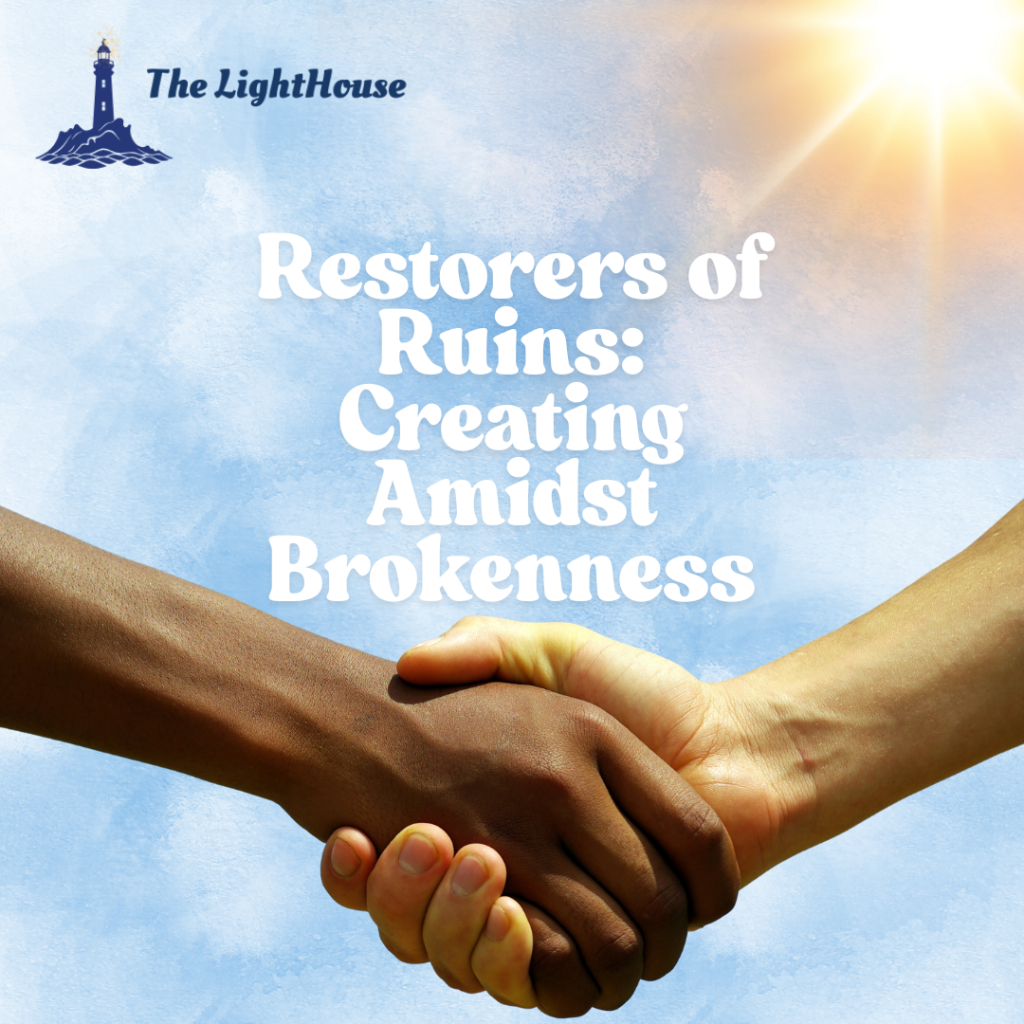In the beginning, God created the heavens and the earth (Genesis 1:1). When He made humanity in His image and likeness (Genesis 1:26-27), God placed within us not only the capacity for relationship but the unique calling to create, to build, and to shape our world in tandem with Him. This is the foundation of your identity as co-creator.
From the garden to the city, from Eden to the New Jerusalem, the story is one of growth, restoration, and expansion and God invites us into this journey not just as beneficiaries, but as partners. Understanding our identity as co-creators reframes how we live, work, relate, and even suffer. We become more aware of our purpose and more anchored in our place in God’s story.
Made in His Image

God made us in His image. This doesn’t speak merely about appearance but to function, authority, and nature. In Genesis 2:15, Adam is placed in the garden “to work it and take care of it.” This was not a punishment but a privilege, a reflection of God’s own nature. God, the ultimate Creator, delegated to man the responsibility of cultivating creation. From naming animals (Genesis 2:19-20) to building societies and crafting stories, music, architecture, and more, humanity reflects God’s creativity.
Being a co-creator means our daily lives are infused with meaning. The artist painting in her studio, the software engineer designing algorithms, the teacher shaping young minds, the farmer tending crops all participate in God’s creative rhythm. Even parenting is a divine creative act, nurturing new life in partnership with God.
Take the story of Bezalel in Exodus 31:1-5. God specifically chose and filled him with the Spirit to design the tabernacle. Here, craftsmanship, detail, and aesthetics matter to God. Your work, your ideas, your input matter. You were made to reflect God in what you build.
Restorers of Ruins: Creating Amidst Brokenness

Life in a broken world means co-creation often looks like restoration. Isaiah 61:4 speaks of God’s people as those who “will rebuild the ancient ruins and restore the places long devastated.” This is not just physical but spiritual and emotional restoration too.
Being a co-creator doesn’t mean we ignore pain. Rather, we engage it with hope and intention. Jesus, the ultimate co-creator, wept over Lazarus (John 11:35) but still called him out of the grave. Likewise, we are called to not only acknowledge brokenness but also to respond with healing, by rebuilding relationships, systems, and cultures.
Consider Nehemiah. When he heard about Jerusalem’s broken walls, he didn’t shrug and move on. He prayed and acted. Nehemiah 2:18 says, “Let us rise up and build.” This isn’t just about construction but a symbol of spiritual and communal restoration. Your contribution, even in places of devastation, is valuable.
When we mentor, advocate for justice, innovate for clean water, or simply show up with kindness, we are participating in God’s restorative work. Even in our careers or creative endeavours, we bring God’s order, beauty, and healing into chaos.
Conclusion
You are not a passive recipient of life. You are not merely surviving. You were created with purpose, on purpose!
As a co-creator with God, you carry divine DNA; a call to steward, shape, and restore.
Romans 8:19 says, “For the creation waits in eager expectation for the children of God to be revealed.” What the world needs is not more consumers, but sons and daughters who know they are co-creators, carriers of kingdom solutions.
In every sphere — art, education, technology, business, governance, and beyond — your voice matters. When you build, encourage, innovate, or serve, you participate in the divine act of creation. This isn’t just a job; it’s your identity.
So, walk boldly!
The Creator calls you partner, and heaven is eager to see what you will co-create.

Thank you for such an awakening write-up. I enjoyed reading it 😊